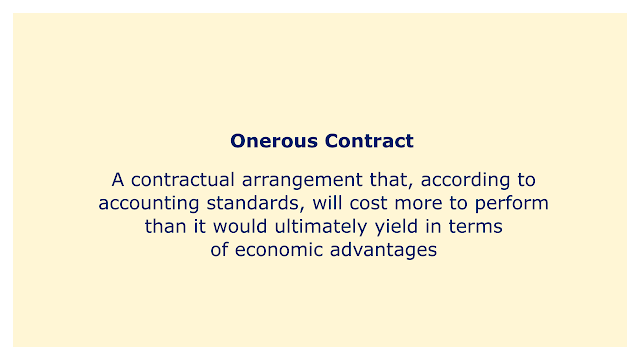 |
| Image: Moneybestpal.com |
An "onerous contract" is a contractual arrangement that, according to accounting standards, will cost more to perform than it would ultimately yield in terms of economic advantages. As a result, the extra expenses may become a liability on the balance sheet.
Many factors, including shifts in the market, unanticipated price rises, or unforeseeable occurrences that make it difficult or impossible to carry out the provisions of the contract, can result in an onerous contract. For instance, a construction business might sign a contract to construct a new office building, but unanticipated delays or cost overruns might make it challenging to finish the project within the set timeframe and price range.
When a burdensome contract is discovered, the business is required to account for the estimated expenses of honoring the contract as a liability on its balance sheet. This obligation is often computed as the difference between anticipated costs and anticipated financial rewards from the contract.
A company's financial statements may be significantly impacted by the recognition of an onerous contract. In addition to decreasing profits and overall financial performance, it can also increase the company's obligations. Nonetheless, it is crucial to acknowledge a burdensome contract in order to accurately reflect the company's financial condition and performance and to give investors and stakeholders a comprehensive image of the risks and uncertainties related to the company's contractual responsibilities.
